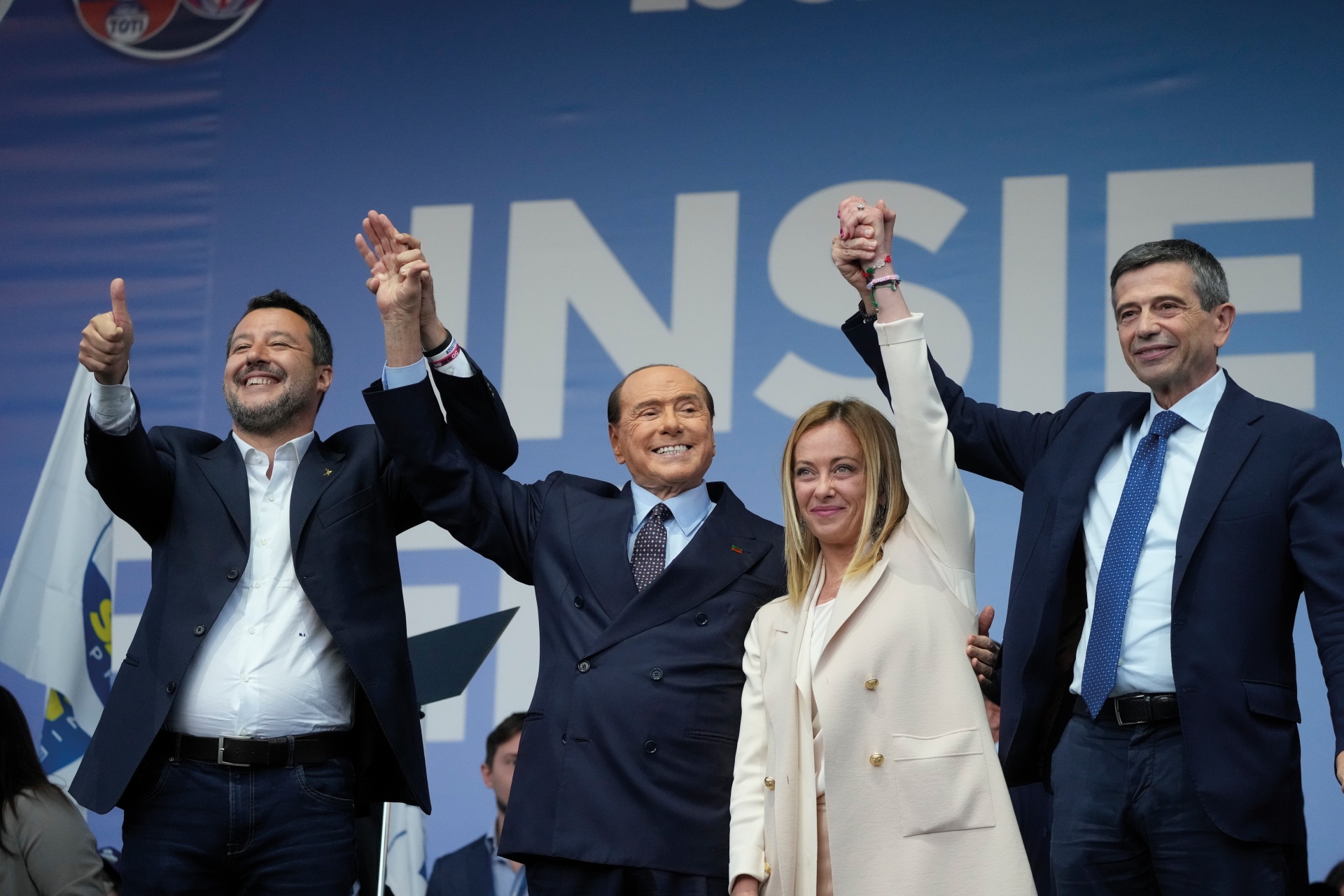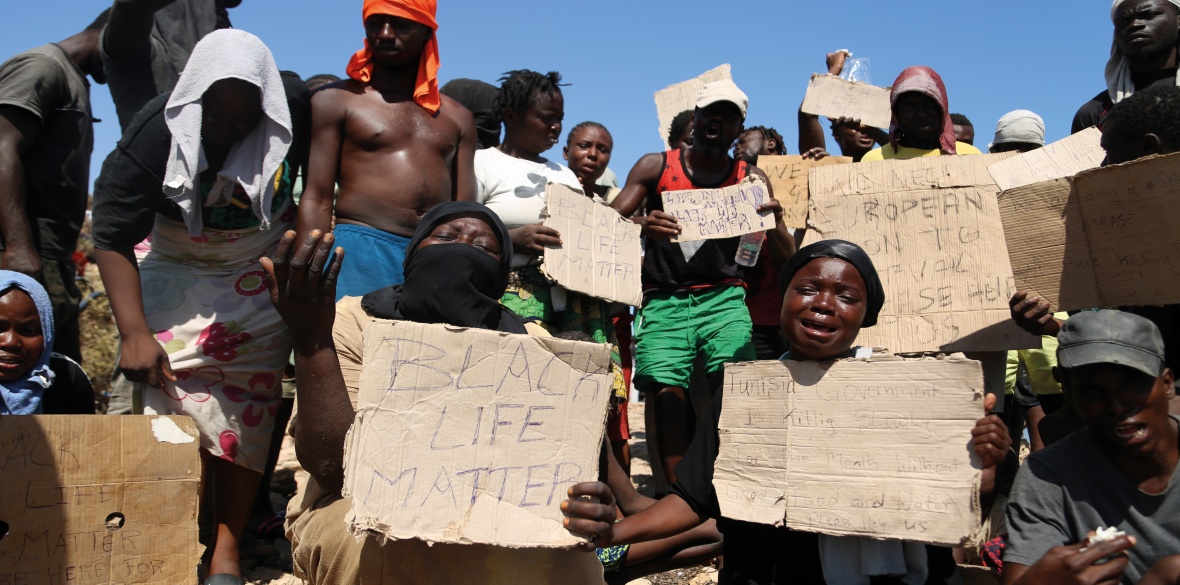This is the last article you can read this month
You can read more article this month
You can read more articles this month
Sorry your limit is up for this month
Reset on:
Please help support the Morning Star by subscribing here
THERE was widespread relief at the underperformance of Spain’s far-right Vox party in last month’s general election.
The centre-right also failed to meet expectations, leaving no bloc easily able to form a government and the likelihood of a second election later this year.
Boasts from some centre-left commentators, however, that the election marked a turning point in pegging back the continent’s radical right were wide of the mark. The overall reality is not only a continuing advance of far-right forces but also a degree of convergence with a traditional right and centre that are adapting to them.
That is reflected in the decision-making structures of the EU. A reformation of the EU is underway. But it is not the dream of those who imagined it to be an essentially social-democratic driver of progress within and without.
Rather, the direction of travel is that sketched in the middle of the last decade by Viktor Orban in Hungary — a Europe of conservative reaction, strengthened national-chauvinism, hardened borders and greater militarism.
When Orban outlined that vision, he was appealing to like-minded politicians in Austria, Poland and Slovakia to found a “Europe of fatherlands.” Euro-enthusiasts dismissed it as an Eastern European hangover that would wither with the advance of liberalism and economic integration.
Not now. Giorgia Meloni’s far-right Brothers of Italy is in government in Rome, where the founding treaty of the EU was signed. Her government is the fruit of decades of reorganisation of the right in Italy after the collapse of Christian Democracy, the radicalisation of conservatism under Silvio Berlusconi and previous gains by far-right parties.

Whatever qualms European leaders had about a Meloni premiership vanished overnight when two immediate red lines were met. The first was dropping provocative talk about Italy suffering due to the euro and the dominance of Germany and France in the EU.
The second was to quash any idea that Italy would unhitch itself from Nato’s war in Ukraine or resile from its military commitments.
So loyalty to the twin economic and military pillars of the European enterprise.
The minute those undertakings were given and acted upon, Meloni was transformed in the European media and diplomatic communiques from a dangerous disrupter to a keen, young leader who is not so bad once you get to know her.
That in turn has boosted her role as a beacon for a range of racist and far-right formations looking to go beyond the fringes and actually to exercise power.
It has again revealed the retreat from the liberal values that are meant to undergird European institutions. That was already well underway regarding the highly reactionary government of Poland.
Its near-total ban on abortion and threats to the independence of the judiciary had brought murmurs of disapproval from Brussels and Berlin. There was even a hint at action when the Polish government looked like it might interfere with business interests and orthodox economic policy.
All of that evaporated last year with Russia’s invasion of Ukraine and the emergence of Poland alongside Britain as heading the most bellicose Nato states in escalating the war and refusing moves to a ceasefire.
Far from the system of European alliances exerting some moderation upon the radical right in Poland, it is the Polish state that is able to leverage its militarism and geostrategic position to win concessions from apparent ideological opponents in European capitals.
Thus the German government, led by the social democrats, is providing more weapons to Poland, which has just announced it is deploying 10,000 troops on the border of Belarus. Instead of curbing Polish reaction, the EU and Nato are enabling the Polish state’s ambition to be a major military and economic power in the eastern European region.
The concessions to Meloni are even more dramatic and far-reaching as they go to the heart of the mechanism that is generating support for the far right. That is Fortress Europe and the increasingly racist asylum and migration policy linked to the militarisation of the continent’s borders.
In June EU states came up with a fresh tightening of anti-refugee and anti-migrant policy. Rather than this being some kind of liberal containment of Meloni, as optimists had vainly predicted, it was widely reported by diplomats to be a triumph for her on account of surrender to the viciously xenophobic Italian position.
There is to be a fast-tracked and stricter process to detain and expel those who are deemed in advance to be unlikely to be given asylum. Despite nominal EU commitments not to deport to countries with appalling human rights records, it is to be left to the “border states” of the bloc, like Italy and Greece, to assess those records.
This is the classic Europeanist hypocrisy of stirring language of human rights on paper to the tune of Beethoven’s Ninth but vitiated in practice. See relations with Saudi Arabia, Israel, Turkey, Egypt...
And as the drowning of another 41 people off the coast of Europe this week underlined, that is leaving aside the murderous efforts to stop people arriving in the first place or, as in Greece, to “push back” those who manage to.
In a nod to states such as Hungary and the Netherlands, countries not on the external EU border will be able to pay to avoid taking asylum-seekers relocated from those that are; that money is to go into “projects” outside Europe.
In other words, it is to fund the barbaric detention of people in Libya, Tunisia and in the Sahel region. This is where France and Western imperialist interests are struggling to retain exploitation of vital raw materials while ensuring those uprooted in the process and through climate breakdown are locked out of migrating to where those commodities and the profits from them end up.
French troops have been stationed for decades in Niger to ensure uranium is extracted from the country while keeping the people in their place — literally.
EU Commission president Ursula von der Leyen visited Tunisia on a joint delegation with Meloni and Dutch Prime Minister Mark Rutte to sell the new migration arrangement to its president Kais Saeid.
A united front not against the far right, but including it in the interests of a Europe of exclusion and capitalist exploitation. Saeid has usurped power for the last two years, dismissing the parliament and imprisoning opponents, including the constitutional Islamist leader Rached Ghannouchi.
He has also launched a violently racist campaign against black African migrants, deploying a version of the European fascist “great replacement” conspiracy theory. Saeid’s fantasy is that it is black Africans supposedly aiming to replace Tunisian Arabs in their own country.
Weeks after visiting Tunis, Rutte’s government in the Netherlands collapsed as he tried to push through yet more restrictions on asylum and migration. The country is now heading for a general election in which anti-refugee and racist politics are set to dominate to the benefit of Geert Wilders and others of the radical right.
We are not talking about reaction on the fringes — politically and geographically — of Europe, but pulsing out from its centre.
Finland has its most right-wing government in its post-war history. There is an unravelling of once vaunted social-democratic consensus across Scandinavia. Three parties of the far right have entered the Greek parliament even as the traditional right also gained.
The extreme right AfD in Germany, which has a “fascising” wing led by Bjorn Hocke, is second in national opinion polls. It could even top the poll at next year’s European elections, where the right and far-right are set to do well across the continent. Hocke says, “This EU must die so the true Europe can live.” An echo of the Nazi slogan that soldiers had to die at Stalingrad so “Germany may live.”
Now the leader of the centre-right CDU Friedrich Merz has broken what was an official cordon sanitaire by mooting possible co-operation with the AfD.
Despite public outrage, Merz’s position is likely to grow in influence as the alternative for the CDU is to consider one in four voters useless for them when it comes to forming a government.
It is an illusion to imagine that the liberal-capitalist centre is going to come to the rescue. The German government, which includes the Greens, is reneging on environmental pledges, threatening to deport relatives of those convicted of a crime and witch-hunting the left opposed to German rearmament and imperialist expansion.
Capitalists in Italy, whatever their personal values, are content with a government that removes lesbian parents from birth certificates and clamps down on journalists. It was only when Meloni tried this week to introduce a windfall tax on the banks that there was a business backlash that forced the government to back down.
The outcome will be more hounding of those the capitalist class are content to see suffer — the poor, the sick and the disabled, all under the cover of scapegoating and distraction.
This poses a profound strategic question for the left. The failure of the left insurgency of the middle of the last decade — from the US to Greece — did not mean the end of “populist” irruptions into everyday life and the restoration of the liberal centre.
The growth of the new right and the radicalisation of the old one are proving that.
So it is not a question of whether there will be another round of insurgent politics. It is whether there is going to be a stronger insurgent left or not. One that can avoid the lure of conventionalism that proved so fatal last time. For there most certainly is a strengthening radical right and the collapse of the liberal centre in the face of it.










